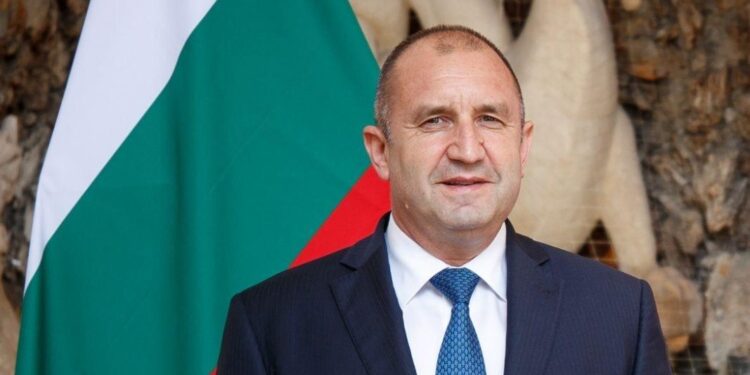Bulgarian President Rumen Radev has sparked renewed debate over the ongoing tensions between Bulgaria and North Macedonia, asserting that the rights of ethnic Bulgarians in North Macedonia present a challenge for Skopje rather than a mere bilateral matter. Speaking to the press amid stalled EU accession talks, Radev emphasized that addressing the treatment and recognition of the Bulgarian minority is crucial for improving relations and fostering regional stability. His comments come at a pivotal moment as both countries navigate complex historical, political, and diplomatic hurdles within the broader context of European integration.
President Radev Emphasizes North Macedonia’s Responsibility in Addressing Bulgarian Rights Issues
President Rumen Radev has underlined that the situation of the Bulgarian minority in North Macedonia should be treated as an internal responsibility for Skopje rather than a matter for bilateral dispute. Speaking at a recent forum, the Bulgarian leader stressed that the rights and protection of ethnic Bulgarians living in North Macedonia are fundamental to the country’s democratic progress and regional stability. He called on North Macedonian authorities to implement concrete measures ensuring equal civic and cultural rights, emphasizing that neglecting these obligations undermines trust between the two nations.
Key demands highlighted by President Radev include:
- Official recognition of the Bulgarian minority within North Macedonia’s legal framework.
- Preservation and promotion of Bulgarian language and heritage in educational institutions.
- Equal representation and protection from discrimination in public service and political participation.
| Issue | Status | Required Action |
|---|---|---|
| Minority Recognition | Pending | Legislation amendment |
| Language Rights | Limited application | Curriculum integration |
| Political Representation | Inadequate | Inclusive policies |
Diplomatic Implications of Radev’s Stance on Bilateral Relations Between Sofia and Skopje
President Radev’s recent comments have significantly shifted the diplomatic narrative concerning Bulgarian minority rights in North Macedonia. By framing these rights as a challenge for Skopje rather than a bilateral concern, Sofia emphasizes its stance that the issue transcends typical intergovernmental dialogues. This perspective complicates ongoing negotiations and highlights a growing impatience in Bulgaria regarding North Macedonia’s approach to minority protection and historical reconciliation. Analysts note that this rhetoric positions Bulgaria less as a bilateral interlocutor and more as an advocate for internal reforms within North Macedonia, thereby altering the dynamics in regional diplomacy.
The implications of this stance extend beyond standard state-to-state interactions, affecting the European integration process and regional stability. Key diplomatic consequences include:
- Heightened political pressure on Skopje to address minority rights as a sovereign responsibility.
- Potential delays in North Macedonia’s EU accession talks due to the unresolved minority issue.
- Widening trust gaps between Sofia and Skopje, demanding increased diplomatic engagement at multiple levels.
| Aspect | Impact |
|---|---|
| Minority Rights Focus | Shift from bilateral to internal reform issue |
| Diplomatic Relations | Increased tension and complexity |
| EU Accession | Risk of accession halt or delay |
Policy Recommendations for North Macedonia to Resolve Minority Rights Challenges
Comprehensive minority rights reforms in North Macedonia must prioritize transparent legal frameworks that safeguard cultural identity, language use, and political representation. Establishing an independent commission tasked with monitoring and enforcing minority rights would build trust among all communities and international observers. Moreover, Skopje should engage in inclusive dialogue involving minority representatives, civil society, and neighboring countries to collaboratively shape policies that promote social cohesion.
Effective implementation requires targeted measures, such as:
- Language rights enforcement in education and public administration;
- Equal access to employment opportunities and public services;
- Anti-discrimination legislation with clear penalties;
- Promotion of minority cultural heritage through state-supported programs.
| Policy Area | Recommended Action | Expected Outcome | |
|---|---|---|---|
| Legal Framework | Draft and adopt comprehensive minority rights laws | Improved protection and clarity on minority entitlements | |
| Civic Engagement | Facilitate inclusive consultative platforms | Increased minority participation in governance | |
| Cultural Promotion | Cultural Promotion | Support minority cultural events and heritage preservation initiatives | Strengthened cultural identity and social cohesion |
| Education | Implement bilingual education programs and language training | Enhanced language rights and reduced educational disparities | |
| Anti-discrimination | Enforce legislation with penalties and awareness campaigns | Lower incidence of discrimination and improved minority integration |















